Rave reviews for Oldest Ice Project
Good news for "Beyond EPICA - Oldest Ice (BE-OI)", a major project in ice core science, in which the Oeschger Centre plays a leading role. The ultimate aim of this international initiative is to extract a core from the oldest ice on earth and obtain information about the air from the past 1.5 million years. This deep look into the climate’s past should help provide a better understanding of the interplay between warm and cold periods, and thus provide information about the dynamics and vulnerability of the Earth’s system. Now, the EU research council has just very positively rated (15 points out of 15) a proposal by the European ice core community (Swiss PI Hubertus Fischer, OCCR group Past Climate and Biogeochemical Studies on Ice Cores) to conduct a preliminary study in Antarctica. Its goal is to locate an ideal site for the actual drilling campaign. Formal negotiations to finance this prospective study are now under way. The project includes the use of a new drilling technique developed at the OCCR. The budget striven for is of 2.57 Million € of which the EU should provide 2.2 Million € and the Swiss State Secretariat for Education, Research and Innovation (SBFI) 370’000 €. If all goes well, the on-site work in the Antarctica could already start in the field season 2016/2017. The funding for the actual drilling into the world’s oldest ice would then have to be applied for in a next step. At its earliest, the drilling campaign could start in 2020.
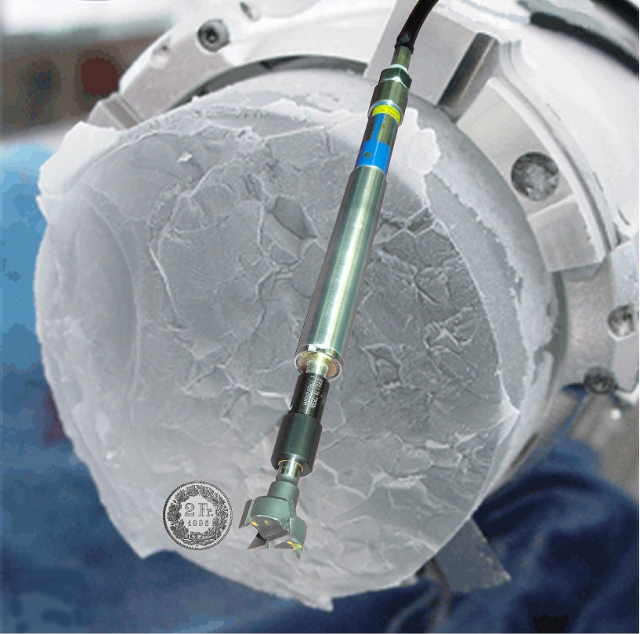
Continuing funding for PhD Program
The OCCR’s PhD Program „PhD of Science in Climate Sciences“ has received continuing funding for the period 2017-2018 (Swiss Universities & University Board of Directors). This guarantees the funding for the Young Researchers Meetings and the Summer Schools, the lump sum support per PhD Student in the Graduate School (5000 CHF/PhD student), funding for specific teaching, and administration/organization of the Graduate School.
ICDC 10 - registration opens in September

The Swiss science community and the Oeschger Centre for Climate Change Research are proud to organize the 10th anniversary International Carbon Dioxide Conference (ICDC10). The first conference of this series took place in Bern, Switzerland, and we now bring the conference back to the Bern area, where some 800 participants are expected. ICDC 10 will take place 21 -25 August 2017 in Interlaken.
The official conference website is now online: It includes information about
- the scientific program and objectives
- the venue
- the conference special issue
- steering committees and supporting institutions
Abstract submission and registration will open in September 2016.
The conference will be organized around themes and “Grand Challenges” that integrate across different reservoirs, ecosystems and disciplines. The overarching goal is to elucidate how human activities, including fossil fuel emissions and land use, influence the coupled carbon-climate system. For an overview see: www.icdc10.ch > program > themes
Thomas Stocker honoured by the American Academy
Thomas Stocker (Earth System Modeling – Atmosphere Ocean Dynamics group) was appointed Foreign Honorary Member — Astronomy and Earth Sciences by the American Academy of Arts and Sciences. Appointments to the American Academy are highly selective. In April 2016 it counted a total of only 213 members, of which 176 were Fellows and 37 Foreign Honorary Member. Congratulations, Thomas on this highly deserved honour!
OCCR Media workshop
The OCCR is pursuing a strategy of doing active media relations. Thus, on 31 May 2016, we organized a workshop for media representatives to provide background information on the Oeschger Centre and present some selected projects of OCCR research groups. In a first round of a planned series of media workshops, Hubertus Fischer (Past Climate and Biogeochemical Studies on Ice Cores group) and Thomas Stocker (Earth System Modeling – Atmosphere Ocean Dynamics group) provided insight into the history of Ice Core research in Bern and talked about the last frontiers in this field (“Oldest Ice project”). Fortunat Joos (Earth System Modeling – Bio-Geo-Chemical Cycles group) presented the Bern 3D climate model and illustrated the work of the Bernese climate modelers with research results regarding sources and sinks of greenhouse gases. Olivia Romppainen (Mobiliar Group for Climate Change Impact Research) informed on the current hail research at her lab and discussed her experience with Citizen Science in the field of reporting hail events. And finally, Stefan Brönnimann (Climatology group) explained the thrilling opportunities provided by 3D reanalysis to open a new window to the climate past.
In the view of the very positive feedback from the attending journalist, we will organize a similar event in 2017. If you would like to be part of this workshop, please let us know.
The 2016 event was attended by representatives of the following media outlets: Bund, Berner Zeitung, NZZ, sda, 3sat, ScNat (communications), NZZ am Sonntag, Swissinfo and University of Bern (communications).
Standard work on climate and society
Heinz Wanner the founding president of the OCCR and professor emeritus of climatology has published a new book. It is entitled „Klima und Mensch – eine 12'000 jährige Geschichte“ (Climate and man –12'000 years of history) and follows the relationship between climate and the great social upheavals in the past.
Read more (in German)
Hans Sigrist Symposium brings outstanding lectures to Bern
On 2 December 2016, the Oeschger Centre will organize the 2016 Hans Sigrist Symposium. This one-day symposium at the University of Bern is entitled "The Human Fingerprint on the Earth System" and will include keynote lectures by the following internationally-renowned scientists:
- Prof. Raymond S. Bradley, Climate System Research Center, University of Massachusetts
- Prof. Martin Claussen, Max Planck Institute for Meteorology, Hamburg
- Prof. Gabriele C. Hegerl, School of Geosciences, University of Edinburgh
- Dr. Erich M. Fischer, Institute for Atmospheric and Climate Science, ETH Zurich
- Prof. Simon Caney, Department of Politics & International Relations, University of Oxford
- Prof. Miranda Schreurs, Bavarian School of Public Policy, Technical University of Munich
- Dr. Roda Verheyen, Günther Rechtsanwälte, Hamburg and former Director of the Climate Justice Programme
Detailed symposium program and registration.
The Hans Sigrist Foundation at the University of Bern is dedicated to the promotion of scientific and academic research. The Foundation‘s premier annual award is the Hans Sigrist Prize, awarded to an academic researcher who is a groundbreaker in the prize field.
New Tambora brochure launched
In a joint effort, members of the Oeschger Centre have published an new brochure on the 1815 Tambora eruption and its consequences for climate and society. The eruption devastated the island of Sumbawa (South East Asia),, led to a global cooling and contributed to the last famine in Switzerland. The publication "Tambora and the 'Year Without a Summer' of 1816. A Perspective on Earth and Human Systems Science" was edited by the Stefan Brönnimann (Climatology group) and Daniel Krämer (formerly Environmental History and Historical Climatology group) and published by the OCCR and the commission for Atmospheric Chemistry and Physics of the SCNAT. It provides a synthesis of this event. It can be downloaded free of charge, a printed version can be ordered at a price of CHF 5.- (plus shipping).
Successful Climate Career Evening
An education in climate sciences is multi-disciplinary by definition. While this broad knowledge base makes Climate Sciences attractive, it also means that companies rarely seek a climate scientist as is. To enlighten possible career paths for climate scientists, the Climate Science Student Council (CSSC) in collaboration with the OCCR organized a climate career evening It took plance on 28 April 2016 and was geared towards all MSc and PhD students of the Oeschger Center. The event welcomed nine speakers from (near-)academic and non-academic fields and proved to be a success for guests and students alike. Seven of the speakeres were OCCR alumni, having graduated from the program within the last 10 years, and who now work in climate related careers. Speakers included Lucien von Gunten (PAGES), Erin Gleeson (MRI), Alena Giesche (recent graduate, future PhD student), Fabienne Lanini (WWF), Stefan Meier (FOEN), Manuel Schläppi (Blaser SwissLube), Silvan Aerni (BAFU), Aurelian Jaggi (Eaternity) and Lukas Bühler (Zum Guten Heinrich). They spoke of additional skills needed for climate scientists to succeed in the job market - for example in project management, team-work and communication - but they also demonstrated that options for climate scientists are wide ranging and rewarding. Like in every field, landing the perfect job requires patience, determination and a touch of luck!
Our Water: Six Models for the Future
The Swiss Alpine Museum (alps) has teamed up with the Oeschger Centre as a scientific partner for an exhibition on water to be opened on 27 October 2016. The show is called “Our Water: Six Models for the Future“ and it will last almost a year. Many OCCR researchers have provided input and guidance for the concept of this challenging exhibition (“’Our Water’ ventures a look into the future while making the link between research and fiction.”). Among the OCCR members involved in the conception and making of “Our water” are Rolf Weingartner (Hydrology group), Christian Rohr (Environmental History and Historical Climatology group), Jürg Fuhrer (Air Pollution/Climate group) and the OCCR’s Executive Director Martin Grosjean.
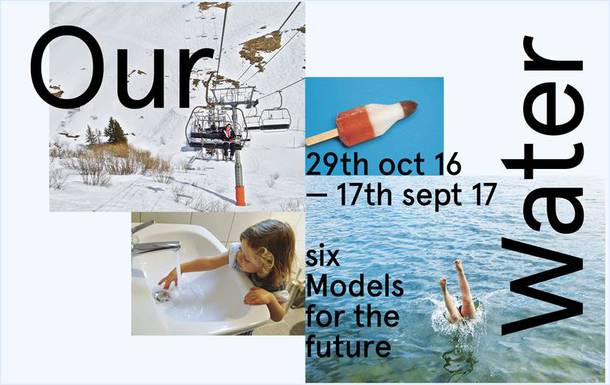
The presentation by the museum of its new major show reads: “Water is energy, life, a daily constant, an asset. Water is simply there – it shapes and determines our existence. We have a fixed idea in our heads of Switzerland as the “Alpine reservoir” of Europe, but this is threatened by recurrent sweltering summers and snowless winters. Societal development and climate change are also factors that will affect the availability of our water. Starting from the current scientific standpoint, four contemporary authors have come up with six models for our future existence with water. The one theme they all share: people talking about their everyday lives in the year 2051. We hear them speak about a control chip for monitoring personal water usage, for example, and a mega ski resort high in the mountains. By playfully exploring what might just happen, “Our Water” calls into question our present-day relationship to water.
On The Top - High Altitude Research Station Jungfraujoch
Research at Jungfraujoch has always been open to scientists from all around the world. Since its beginnings in 1930, institutions from Austria, Belgium, Germany, Great Britain and Switzerland have been members of the International Foundation High Altitude Research Station Jungfraujoch. About 50 years ago, the foundation expanded to include a smaller station on the Gornergrat. Today, HFSJG operates the research station on behalf of its members, who co-finance the foundation with their contributions. It has state-of the-art research infrastructure – including data transfer with a broadband internet connection - and Physicists, physicians, glaciologists and many other researchers spend more than 1,000 working days a year at Jungfraujoch. The research station is linked to the Oeschger Centre via the OCCR group Environmental Isotopes and Gases and many other ties. A new brochure on the history and the current research conducted at 3,454 metres above sea level has just been published with the editorial assistance of the OCCR. On The Top - High Altitude Research Station Jungfraujoch is directed at the general public and will – among other distribution channels – be made available to tourists on the Jungfraujoch. Have a look at the online version.
DAAD grant for Benjamine Bandowe
Benjamin Bandowe, currently Postdoc in the Paleolimnology group was awarded a DAAD “Postdoctoral Researchers International Mobility Experience” grant (18 months) to work at the School of Chemistry, University of Bristol, UK. He will work on compound-specific C and O stable isotope compositions of oxygenated polycyclic aromatic hydrocarbons.
“It’s a paper world” – How to read and publish research articles
The OCCR’s annual Young Researchers Meeting took place on 9 - 10 June 2016 in Aeschi in the Bernese Oberland. A number of 45 PhD students and Postdocs trained their skills for both passive and active mastering of research articles and scientific texts in general, and reflected on the mechanisms of present-day paper publication. Keynote lectures and workshops led by OCCR supervising faculty members Claus Beisbart (Institute of Philosophy) and Martin Grosjean (Studies Director of the Graduate School of Climate Sciences) and by Christian Wymann (U Bern Libraries) focused on selected topics like sound argumentation in scientific texts, scientific integrity, publication measures, peer reviewing and how to read research articles efficiently.
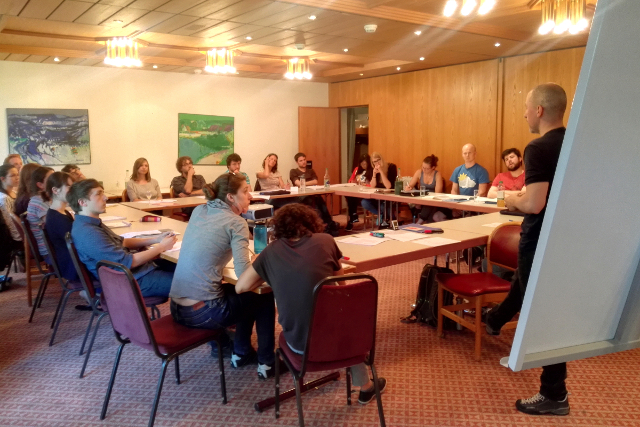
Environmental Politics and Governance
Research on environmental politics and governance is a new and vibrant field in which OCCR members stand at the forefront. On June 16 – 19, 2016, the 2nd Annual Conference on Environmental Politics & Governance was held in Gerzensee, Switzerland. As was the case for its first edition in Seattle, a selected group of internationally renowned scholars met to present their research and exchange on environmental politics and governance. The goal of the conference is to emphasize outstanding scholarship through theoretically informed and methodologically rigorous empirical work. Thereby it aims at shaping future environmental politics and governance research across the social sciences. Karin Ingold from (Environmental Policy Analysis group) is member of the organizing board of the conference. With the support of the OCCR it was possible to co-fund and host the event together with other leading Swiss research organizations including the Graduate Institute Geneva, ETHZ, University of Zürich, and EAWAG.
At the conference, OCCR members Karin Ingold and Florence Metz presented the results of an interdisciplinary research, where social and natural scientists of the University of Bern and the EAWAG collaborated on the topic of save drinking water supply in light of new challenges arising from micropollutants. The particular conference setting provided an inspiring environment to motivate future social science research on environmental politics and governance, and develop generalizable theories that are based on real-world data and advanced empirical research methods.
PAGES Workshop „Volcanic Impact on Climate and Society“
How has volcanic activity modulated climate through time? Is there a single, consistent climate response to volcanoes on regional to local scales? What factors modulate societies’ resilience ‐ or vulnerability ‐ to volcanically induced climate change? These questions were addressed at the inaugural workshop of the Volcanic Impacts on Climate and Society (VICS) PAGES working group that was held on 6‐8 June at the Lamont‐Doherty Earth Observatory in Palisades, New York. The three‐day meeting brought together approximately 50 established and early‐career researchers from across Europe, North America, South America and Asia to discuss different aspects and records of the impacts of volcanic eruptions on the Earth system and on human populations. OCCR member Michael Sigl (Analytical Chemistry Research group) who is a member of the steering committee of the PAGES VICS group was among the five organizers of the meeting, Stefan Brönnimann (Climatology group) also attended and gave an invited keynote talk.
Improve your scientific English
The OCCR provides different services to help young researchers improve their skills in scientific English and thus succeed in the academic world. This offer includes a ‘Master Theses’ training course (part of the Compulsory Module) as well as language courses for PhD students. In cooperation with the Academic English Services (AES) of the University of Bern, the Graduate School of Climate Sciences offers individual language consultations to its PhD students. These consultations are primarily designed to work on papers or similar texts that are ready for submission/publication. In the consultations, grammar, style and tangibility of your texts will be improved. Ideally, you take the consultations towards the end of your PhD. Additionally, we can provide contacts to specialized language editors. For further information contact Peter Stucki.
Workshop on Solar-Terrestrial Sciences in Bern
The Scientific Committee on Solar Terrestrial Physics (SCOSTEP) is an international organization with the goal of strengthening and promoting international solar-terrestrial physics research. As of 2016 Switzerland has become a member of SCOSTEP and a National Committee has been established with the goal of promoting and representing the solar-terrestrial community within Switzerland and internationally. The 1st Swiss SCOSTEP workshop will take place on 4 - 5 October 2016 in Bern. It will bring together Swiss scientists with an interest in solar-terrestrial science. It encourages a lively exchange between scientists from all fields within solar-terrestrial physics to identify synergies, foster collaborations, and strengthen the community. Deadline for registration is 31 July 2016. Details
OCCR Plenary Meeting on 15 September 2016
The next OCCR Plenary Meeting will take place on 15 September 2016 (14 – 17 h). Save the date!
2nd European Hail Workshop
The 2nd European Hail Workshop will take place on 19 -21 April 2017 in Bern. In several regions of Europe, including Switzerland, south-west Germany and Austria, hail damage has increased substantially in recent years with the consequence that hail is now one of the major atmospheric risks. The Mobiliar Lab, the Karlsruhe Institute of Technology (KIT), MeteoSwiss, and the OCCR are jointly organizing this second workshop for researchers and professionals to discuss different aspects of hail. Contributions covering the key themes listed below are invited:
- Convection and hail in a changing climate
- The microphysics and dynamics of hail storms
- Hail damage and hail damage prevention
- Local probabilities and long-term statistics of hail
- Nowcasting and forecasting of hail
Contact: Olivia Romppainen (Mobiliar Group for Climate Change Impact Research)
Researchers who have recently joined the OCCR:
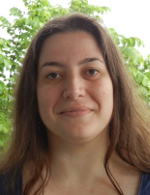 |
Denica Bozhinova is new a Postdoc with the Earth System Modeling – Atmosphere Ocean Dynamics group. She Did her PhD on “Interpreting plant-sampled Δ14CO2 to study regional anthropogenic CO2 signals in Europe” at the Wageningen University, the Netherlands. She is an expert in regional modelling and will be responsible for the Weather and Forecasting Research (WRF) model at the OCCR. In particular, her research will focus on wind and precipitation over Switzerland which are topics relevant for the Mobiliar Lab.
|
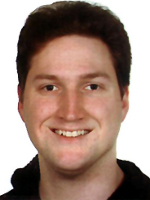 |
Christoph Butz is new a Postdoc with the Lake Sediments and Paleolimnology group where he already did his PhD (“Hyperspectral imaging of lake sediments: Methods and applications in a meromict lake of NE Poland”).
|
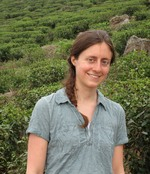 |
Valérie Fazan is is a new a PhD student at the Mobiliar Group for Climate Change Impact Research. She did a MSc in Climate Sciences at the University of Bern (“North Atlantic atmospheric rivers in the ERA-Interim dataset: Detection, climatology and link to Swiss floods “). Her PhD project is called “Moisture fluxes towards Switzerland: characterizing the influence on flood occurrence and future changes”.
|
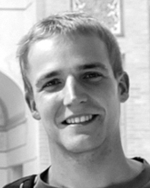 |
Guido Felder is new a Postdoc with the Hydrology group and the Mobiliar Lab. He did his PhD („Ausarbeitung einer Methode zur Abschätzung extremer Hochwasser am Beispiel der Aare in Bern“) within the same group.
|
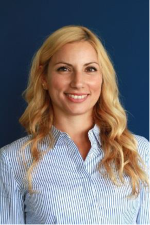 |
Paraskevi Giannakaki is a new a Postdoc with the Climate/Air Pollution group. Her specialty is in climate sciences with a background in applied mathematics. She holds a PhD from University of Bern where she did a climatological analysis of Topopause-level synoptic-scale flows and studied their links to extreme precipitation events in Europe. She is now involved in the ERA.Net RUS Plus project that seeks to provide a quantitative analysis of the influence of seasonal droughts and heat waves on Russia’s cereal production under current and future climatic conditions, and to explore opportunities for adaptation of Russian agriculture to climate change and risks of extreme events.
|
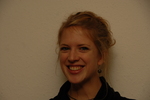 |
Lena Hellmann is a new a Postdoc with the Dendroclimatology group where she already did here PhD (“Potential and limitation of Arctic driftwood as an environmental archive”).
|
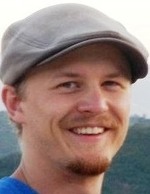 |
Aurich Jeltsch-Thömmes is a new PhD student with the Earth System Modeling – Bio-Geo-Chemical Cycles group. He gained a MSc in Climate Sciences at the University of Bern (“Reconstruction of late Holocene Greenland temperatures from argon and nitrogen isotopes entrapped in NorthGRIP ice”). His PhD project is on “Glacial – Interglacial Variations”.
|
| |
Klaus Schneeberger, is a new a Postdoc with the Mobiliar Group for Climate Change Impact Research. He did his PhD (“Flood risk analysis in a meso-scale mountain catchment – Development and application of a probabilistic analysis framework”) at the University of Innsbruck, Austria and then worked as a Postdoc at the alpS – Centre for Climate Change Adaptation in Innsbruck.
|
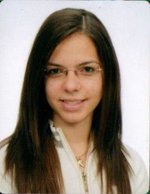 |
Veronika Valler is a new PhD student with the Climatology group. She completed her Master’s Degree in Meteorology at Eötvös Loránd University, Budapest, Hungary on “The effects of atmospheric dynamics on isotopic composition of precipitation over Europe, by analysing multidecadal precipitation isotope data”. She worked at the Research Centre Jülich as a research assistant on a micrometeorological project. Her PhD project focuses on Paleoclimatological Data Assimilation.
|
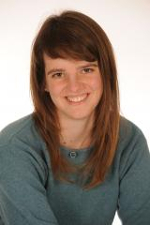 |
Anne-Lena Wahl is a new a Postdoc in the Climate/Air Pollution group. She did her PhD at the University of Grenoble Alpes on “Interactions between plants and arbuscular mycorrhizal fungi in mountain grassland ecosystems under current and future climate conditions’”. She will continue working on a related subject in a long-term translocation experiment to investigate effects of nitrogen deposition along a climatic gradient in the Swiss Alps.
|
A warm welcome to all of you!
Researchers who have recently left the OCCR:
Sandro Blumer who finished his PhD at the Earth System Modeling – Atmosphere Ocean Dynamics group is now with the Swiss Federal Statistical Office (Bundesamt für Statistik).
Stefan Muthers who was a Postdoc at the Earth System Modeling – Atmosphere Ocean Dynamics group is now with the Deutscher Wetterdienst, Freiburg, Germany.
All the best for your future career!